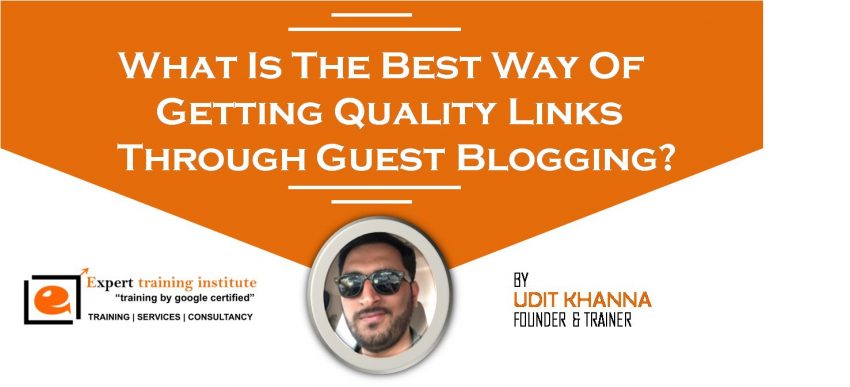14 Ways Of Link Building That Google Calls Link Manipulation

Link building is an important part of SEO as a backlink is considered a vote for websites but link quality is subjected to evaluation by search engine. Here we’re talking about Google that has clearly specified link exchange between sites. It values quality link but at the same time it doesn’t want to be tricked by SEOs.
There are a total of 14 ways of manipulating links and serious SEOs must be aware of these ways
1. Web Rings
One Sage Well developed the concept of creating a ring-like formation to get quick backlinks; achieve high ranks and traffic from high traffic sites. It was in 1994 but today it is no longer followed. Websites could become part of the ring only after getting the approval of the webmaster of the ring.
2. GuestPost Spam
Having guest posts with a link to your site on a high traffic site is a great idea to generate quality backlinks but it could hurt your site, if the website from where you’re getting backlink has poor user experience.
3. Link Farm
It is the most convenient and also the most unethical way of generating backlinks. The process is to create sites with the sole purpose of farming links for other sites. It was a popular way of getting backlinks when Google Page Rank mattered but now Google has new guidelines for link exchange. Link farming and getting backlinks from farms is banned.
4. LinkBait and Switch
A high ranking and popular piece of content gets many quality links and then the content owner replaces it with a commercial article. Since the original content was high ranking, the changed content is benefitted by the popularity of the content it replaces. LinkBait and Switch is the process of frivolously getting traffic for a commercial piece of content.
5. Buying Reviews with Links by Offering “Free” Products
There is nothing wrong in asking your customers to review your business with a link but the reviews must be genuine and not faked. If you’re doing well, your audiences will certainly mention your business with its link in their reviews. But some businesses offer free gifts for writing fake reviews with links. It is a scam and if you’re caught, your site will lose its ranking and reputation.
6. Link Exchange
It is a business agreement between two sites and the agreement is reached with the sole objective of collecting backlinks to achieve high rank on SERPs. But Google considers it as Link Scheme. There are many websites and directories offering promising quality links in exchange for free. And it is easy to link to those sites and rank but it could be harmful in the long run.
7. Blog Comment Spam
Blogs are platforms for the exchange of ideas but SEOs use blogs for the exchange of links. You can comment on any blogpost and also link back the comment to your site. But the comment should be relevant to the blogpost and so is your site. It is easier to collect backlinks using comments but in reality, it is spam.
8. Shady Redirects
301 redirect is a facility to target the traffic of a site that is no more functional but this good practice becomes a scam the moment you try taking advantage of the high traffic of non-existing sites. You could be in trouble for the redirects from the expired domains if they aren’t relevant to your site. Another shady redirect is used on online movies. Viewers are asked to click on play to see the movie but they’re taken to another site not related to the movie.
9. Commercial Anchor-Text Keywords
If your site has non-branded keywords or keywords not containing your brand name then the text will be considered commercial and a scam. It isn’t that every keyword should contain a brand but there should be a balance between the keywords with and without the brand name.
10. Spammy Footer Links
Links are created at the bottom of web pages. For instance, take an article. You can create links at the end to show the connection between the article and your site. Sadly, this practice could result in rank loss, and also you could get penalized by Google.
11. Link Selling
SEOs simply can’t sell links to pass domain authority. Google is quite strict about link selling and it de-indexes sites that sell links and also cuts their traffic to half.
12. Buying Links
Just like selling links is banned, buying links is also prohibited. Buying quality links sounds good but it can’t be true. And it can get your site penalized.
13. Paid Advertorials
Some SEOs are still paying for advertorials to pass PageRank but little do they know that PageRank no longer exists and officially declared dead by Google. And also the process of paid advertorials is banned by the search engine.
14. Directory Listing
Never register and/or buy placement on directories without determining quality of the directories as they could be link scheme instead of genuine directories. Always register in genuine directories like Yahoo.
Link exchange is like a business agreement between two relevant sites to vote for each-other. Exchanging links from high traffic sites could divert traffic to your site but SEOs use the process to achieve high ranks. They’ve developed ways to manipulate the whole process to get quick backlinks. Google calls it Link Manipulation and it punishes sites that follow unethical ways of building links.
Conclusion
SEOs have to make backlinks but naturally. There are good directories where you can register your site and get quality backlinks for your site. Also, you can use natural ways like commenting on blogs that are related to your business and the 301 redirects but the process must be natural.
SEOs employ juniors for link building and the juniors are assigned targets to achieve. It is learnt that the senior SEOs don’t guide and advice their juniors and the latter make silly mistakes. It is for the SEOs to take care of their link building process and guide their juniors to build quality backlink.



